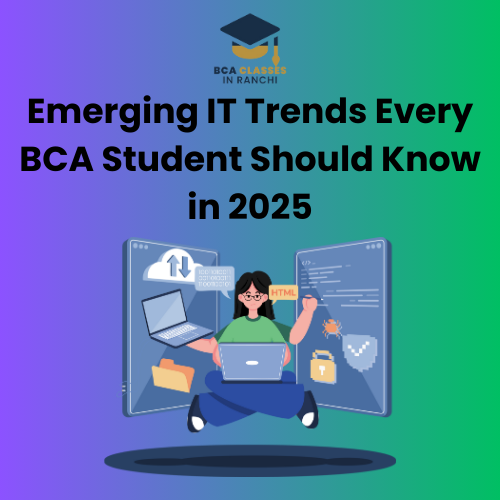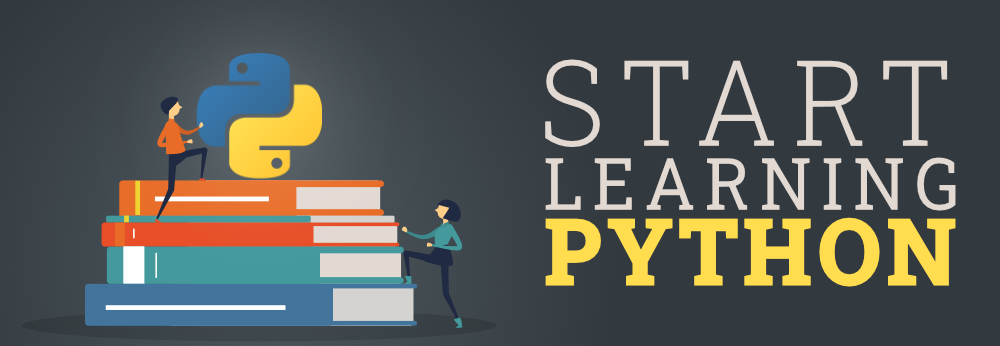Introduction
The Information Technology (IT) industry is constantly evolving. As a BCA student, keeping up with the latest trends will help you stay ahead in your career. The tech world moves quickly, so it’s important to understand the emerging technologies and trends that are shaping the future of IT. Here are some of the key trends you should be aware of.
1. Artificial Intelligence (AI) and Machine Learning (ML)
AI and ML are transforming how businesses operate. These technologies enable computers to think and learn like humans. AI is used in chatbots, virtual assistants, and predictive analytics. ML helps systems improve over time by learning from data.
- Key Areas to Focus On: Natural language processing, computer vision, and deep learning.
- Why It Matters: AI and ML skills are highly in demand, and they offer numerous career opportunities in areas like data science and software development.
2. Cloud Computing
Cloud computing allows businesses to store and access data over the internet, rather than on local servers. It’s cost-effective and scalable, which is why more companies are adopting it.
- Key Players: Amazon Web Services (AWS), Microsoft Azure, Google Cloud.
- Why It Matters: Cloud computing is essential for businesses that need to store large amounts of data securely. Knowledge in cloud platforms can open doors to jobs in cloud architecture and engineering.
3. Cybersecurity
As the internet grows, so do the threats. Cybersecurity is a major concern for companies worldwide. Protecting data and networks from hackers is more important than ever.
- Key Areas to Explore: Ethical hacking, cryptography, network security, and data protection.
- Why It Matters: With cyberattacks on the rise, businesses need skilled professionals who can protect their systems. Cybersecurity skills are in high demand across all sectors.
4. Internet of Things (IoT)
The Internet of Things refers to everyday objects that are connected to the internet, like smartwatches, refrigerators, and home assistants. These devices collect and exchange data, making our lives more convenient.
- Key Technologies: Sensors, wireless communication, and data analytics.
- Why It Matters: IoT is creating new opportunities in fields like smart homes, healthcare, and manufacturing. Understanding IoT can help you develop new products and services.
5. Blockchain Technology
Blockchain is a decentralized digital ledger used to securely record transactions. It’s the technology behind cryptocurrencies like Bitcoin but has applications beyond just finance.
- Key Areas to Explore: Smart contracts, decentralized applications (dApps), and digital currencies.
- Why It Matters: Blockchain has the potential to disrupt many industries, including finance, supply chain, and healthcare. Knowledge of blockchain technology is becoming increasingly valuable.

6. 5G Technology
5G is the fifth generation of mobile networks, offering faster speeds and more reliable internet connections. It will enable innovations in areas like autonomous vehicles, smart cities, and virtual reality.
- Why It Matters: With 5G, the speed and efficiency of data transmission will increase, paving the way for new technologies and services. BCA students with an understanding of 5G can work in network engineering or mobile development.
7. Virtual Reality (VR) and Augmented Reality (AR)
VR and AR are changing how we experience the world around us. VR creates fully immersive digital environments, while AR overlays digital information on the real world.
- Key Applications: Gaming, healthcare, education, and real estate.
- Why It Matters: VR and AR are transforming industries and creating new opportunities in game development, training, and education. These technologies are expected to grow in the coming years.
8. Big Data and Data Analytics
Big data refers to the enormous amounts of data generated every day. Data analytics involves analyzing this data to extract useful insights. Businesses rely on data-driven decisions to improve performance.
- Key Tools: Hadoop, Apache Spark, and Tableau.
- Why It Matters: Understanding big data tools and techniques can help you work as a data analyst, data scientist, or business analyst. The demand for professionals who can interpret and analyze data is growing rapidly.
9. Robotic Process Automation (RPA)
RPA involves automating repetitive tasks using robots or software. Many industries are adopting RPA to improve efficiency and reduce human error.
- Key Tools: UiPath, Blue Prism, and Automation Anywhere.
- Why It Matters: RPA is revolutionizing industries like finance, healthcare, and customer service. Knowledge of RPA tools can lead to opportunities in automation development and process optimization.
10. DevOps and Agile Development
DevOps is a set of practices that combines software development and IT operations. Agile development is a methodology that focuses on iterative development and collaboration. Together, they help businesses deliver software faster and more efficiently.
- Key Practices: Continuous integration, continuous delivery (CI/CD), and version control.
- Why It Matters: DevOps and Agile are critical for developing software quickly while maintaining high quality. These practices are widely used, and proficiency in them can make you a valuable asset to any tech team.
Conclusion
The IT industry is changing rapidly, and it’s important for BCA students to stay updated on emerging trends. By learning about these technologies, you can prepare for a successful career in IT. Whether it’s AI, cloud computing, or cybersecurity, these fields offer exciting opportunities for growth and innovation. Keep an eye on these trends, and you’ll be well on your way to becoming a leader in the IT world.
Read Our Latest Blog
How to Build a Startup While Pursuing BCA: Valuable Lessons
For More Information and Updates, Connect With Us
Name Abhishek
Phone Number: +91-7488456170
Email ID: abhishek@eepl.me
Our Platforms:
Digilearn Cloud
EEPL Test
Live Emancipation
Follow Us on Social Media:
Instagram – EEPL Classroom
Facebook – EEPL Classroom
Stay connected and keep learning with EEPL Classroom!












